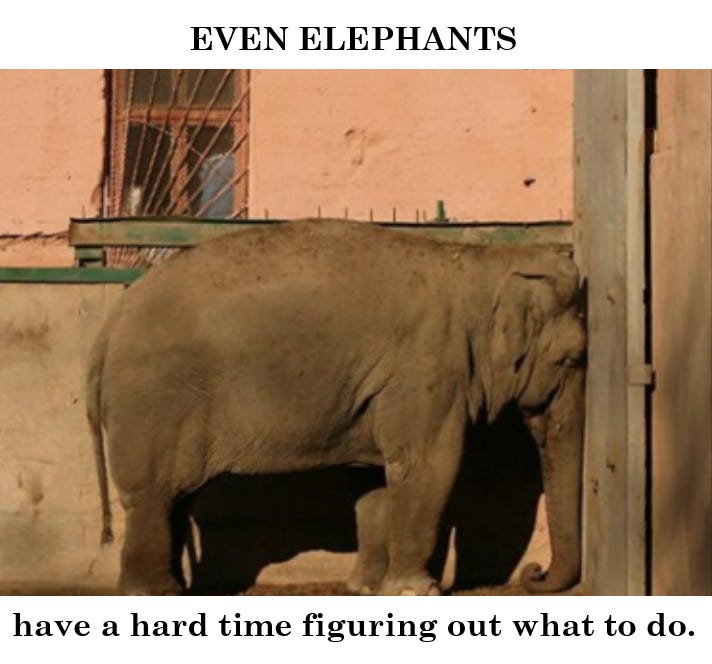The “Top Ten” Job Filter
Narrowing down your career prospects.
So, your employer didn’t give you Monday off to witness the once in a score opportunity to view the total solar eclipse? As the any tough negotiator will tell you, don’t get mad get even. We have the perfect topic in today’s newsletter to help you do just that.
See, most focus too much on the expense side of their cash flow statement. So distracted by counting beans, they neglect the much more important component of the household budget: income. This is predictable. It is much simpler to reduce expenses than it is to increase income.
When reducing expenses, there is only one party you need to coax into action, yourself. Improving your income requires engagement with other parties, the paying kind, to tilt the scales in your favor. A much more difficult proposition.
This means leveraging your skillsets, hopefully mission critical, to demand a greater share of revenues or retooling yourself to acquire more valuable knowledge. Neither happen accidentally.
Narrowing down your career focus is the mental equivalent of eating an elephant. While I hope I’m never in a position to have to eat an elephant, I would imagine the best approach would be to take manageably sized bites one at a time.
The “Top Ten” job search process forces us to breakdown this daunting process into smaller, less overwhelming components. Like an optometrist, the assessment brings our values and potential career matches into greater focus. We then can direct our energies with greater effect.
Here’s how it goes:
1. Top Ten Criteria; 7 you want and 3 you don't want
‘Criteria’ is subjective and can be anything like “I want to work from home”, or “I need to make $X per year”. Make sure they are realistic but don’t compromise here. Compromise comes later in the process when you are selecting from available options. If you want that corner office, put it down. The three criteria you do not want are just as important as the ones you do want and will serve to weed out a potentially miserable future. Rank them as best you can.
2. Top Ten types of roles that "might" fit your criteria
You may not know the answers here, hence the use of “might”. Just do the best you can with reasonable assumptions. Chances are, you probably have a good idea what a job/career entails just by doing a quick online search. A best guess will suffice.
3. Top Ten companies or employers that "might" fit the criteria and roles
This is similar to creating a list of universities you would like to apply to and the major you desire. Keep in mind, this will only be a starting point. You may find your search leads you to options you didn’t even know existed, usually by referral. Don’t forget, there’s such a thing as self-employment.
4. Top Ten people you know who might be able to help with the companies or roles
This one might be the most critical, and difficult, step. It requires you to network. Having been in the people business for nearly two decades, this comes second nature to me. But I was once green behind the ears and terrified to ask anyone for anything. People are genuinely enthusiastic to help you, especially when you tell them “Hey, I want to do what you do”. Believe that. I, for one, get so excited that I probably scare people away. LinkedIN is a fantastic resource here.
5. Top Ten questions to ask when interviewing companies.
When interviewing, never forget that you are interviewing just as much as being interviewed. If you went on a date, would you remain silent and never lob any questions toward a potential long-term suiter? Of course not. That is, unless you like slumber parties on railroad tracks. Come prepared with questions specifically structured to help you a) confirm/dispel assumptions you have made, and b) map the roll onto your criteria framework created in step 1.
6. Top Ten next steps
Be persistent. Do not be content with dead ends that are not of your own making. The goal is to walk away from every interaction with actionable information. For example, if during an interview you find out a position is checking all the wrong boxes, you know to discontinue pursuit of this role and others like it. If you are passed up for another candidate, get feedback on how you can improve your value proposition or ask if there are any other open positions you could be referred to. If you cannot get this feedback, your action step is to find out how you can get this feedback. In summary, the Top Ten Next Steps is to make sure you always have a next step.
There you have it. Your ticket to the good life. All you need to do is add hours and hours of dedication and the occasional shower. If you’re wondering, yes this is how I landed the career I’m in now. Using this exact formula under the advice of a highly respected center of influence. It worked for me, and it could work for you.
Justin, if you’re reading, thank you!
The opinions voiced in this material are for general information only and are not intended to provide specific advice or recommendations for any individual.
Securities offered through LPL Financial LLC. Member FINRA/SIPC. Advisory Services offered by National Wealth Management Group LLC, an SEC Registered Investment Advisory and separate entity from LPL Financial LLC.





